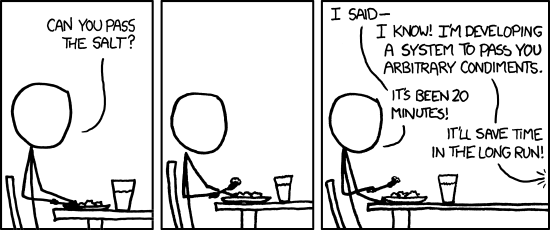When Good design
becomes Worse design
than No design


When Good design

When Good design
becomes Worse design

When Good design
becomes Worse design
than No design

When Good Design
Becomes Bad Design

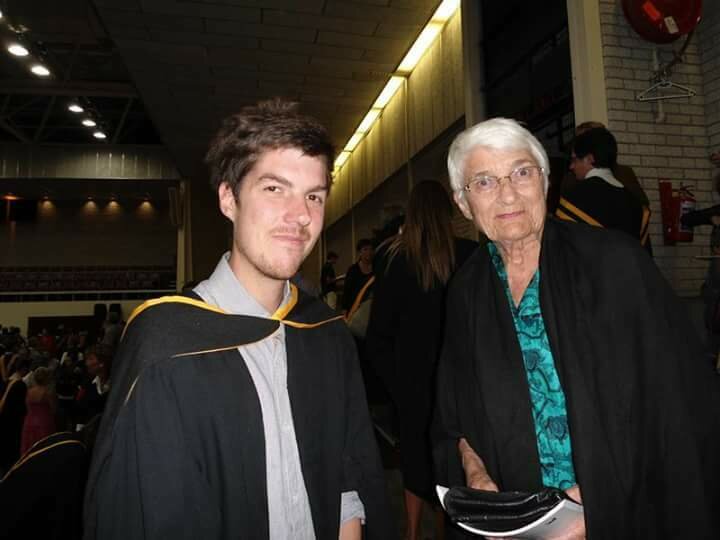
What I Wish I
Knew in 2012

When Good Design
Becomes Bad Design


What I Wish I
Knew in 2012

When Good Design
Becomes Bad Design


What I Wish I
Knew in 2012

?
When Good Design
Becomes Bad Design


What I Wish I
Knew in 2012

?
1. It does not have to suck this much
2. AI is OK-ish, I guess. Sure.
3. Cleverness always has a cost
1. It does not have to
suck this much
Gregory Benford
Shipstar (2014)

"Remember that
people break down too,
not just machinery"

Yikes!
The Verge
How tech companies are ignoring the pandemic’s mental health crisis (2021)
"The one-question survey had a simple "yes or no" query: "Are you currently suffering from job burnout?" Of the 11,487 users who responded, over half of respondents (57.16%, to be precise) replied "yes." Frankly, it's a mindblowing statistic"
Yikes!
The Verge
How tech companies are ignoring the pandemic’s mental health crisis (2021)
"The one-question survey had a simple "yes or no" query: "Are you currently suffering from job burnout?" Of the 11,487 users who responded, over half of respondents (57.16%, to be precise) replied "yes." Frankly, it's a mindblowing statistic"
Yikes!
The Verge
How tech companies are ignoring the pandemic’s mental health crisis (2021)
"The one-question survey had a simple "yes or no" query: "Are you currently suffering from job burnout?" Of the 11,487 users who responded, over half of respondents (57.16%, to be precise) replied "yes." Frankly, it's a mindblowing statistic"
Yikes!
The Verge
How tech companies are ignoring the pandemic’s mental health crisis (2021)
"The one-question survey had a simple "yes or no" query: "Are you currently suffering from job burnout?" Of the 11,487 users who responded, over half of respondents (57.16%, to be precise) replied "yes." Frankly, it's a mindblowing statistic"
Yikes!
The Verge
How tech companies are ignoring the pandemic’s mental health crisis (2021)
"The one-question survey had a simple "yes or no" query: "Are you currently suffering from job burnout?" Of the 11,487 users who responded, over half of respondents (57.16%, to be precise) replied "yes." Frankly, it's a mindblowing statistic"
Yikes!
The Verge
How tech companies are ignoring the pandemic’s mental health crisis (2021)
"The one-question survey had a simple "yes or no" query: "Are you currently suffering from job burnout?" Of the 11,487 users who responded, over half of respondents (57.16%, to be precise) replied "yes." Frankly, it's a mindblowing statistic"
mhit.org.za







everythingisaremix.info
AI is OK. Sure yeah,
probably I guess.


everythingisaremix.info
AI is OK. Sure yeah,
probably I guess.




everythingisaremix.info
AI is OK. Sure yeah,
probably I guess.




everythingisaremix.info
When Good Design
Becomes Bad Design


What I Wish I
Knew in 2012

?
Everything is a Remix
"The writer Jonathan Lethem has said that when people call something “original,” nine out of ten times they just don’t know the references or the original sources involved. What a good artist understands is that nothing comes from nowhere. All creative work builds on what came before. Nothing is completely original. [...] If we’re free from the burden of trying to be completely original, we can stop trying to make something out of nothing, and we can embrace influence instead of running away from it."
Austin Kleon
Steal Like an Artist (2012)

When Good Design
Becomes Bad Design


What I Wish I
Knew in 2012

?
Everything is a Remix
"The writer Jonathan Lethem has said that when people call something “original,” nine out of ten times they just don’t know the references or the original sources involved. What a good artist understands is that nothing comes from nowhere. All creative work builds on what came before. Nothing is completely original. [...] If we’re free from the burden of trying to be completely original, we can stop trying to make something out of nothing, and we can embrace influence instead of running away from it."
Austin Kleon
Steal Like an Artist (2012)

When Good Design
Becomes Bad Design


What I Wish I
Knew in 2012

?
Everything is a Remix
Austin Kleon
Steal Like an Artist (2012)

"The writer Jonathan Lethem has said that when people call something “original,” nine out of ten times they just don’t know the references or the original sources involved. What a good artist understands is that nothing comes from nowhere. All creative work builds on what came before. Nothing is completely original. [...] If we’re free from the burden of trying to be completely original, we can stop trying to make something out of nothing, and we can embrace influence instead of running away from it."
When Good Design
Becomes Bad Design


What I Wish I
Knew in 2012

?
Everything is a Remix
Austin Kleon
Steal Like an Artist (2012)

"The writer Jonathan Lethem has said that when people call something “original,” nine out of ten times they just don’t know the references or the original sources involved. What a good artist understands is that nothing comes from nowhere. All creative work builds on what came before. Nothing is completely original. [...] If we’re free from the burden of trying to be completely original, we can stop trying to make something out of nothing, and we can embrace influence instead of running away from it."
When Good Design
Becomes Bad Design


What I Wish I
Knew in 2012

?
Everything is a Remix
Austin Kleon
Steal Like an Artist (2012)

"The writer Jonathan Lethem has said that when people call something “original,” nine out of ten times they just don’t know the references or the original sources involved. What a good artist understands is that nothing comes from nowhere. All creative work builds on what came before. Nothing is completely original. [...] If we’re free from the burden of trying to be completely original, we can stop trying to make something out of nothing, and we can embrace influence instead of running away from it."
When Good Design
Becomes Bad Design


What I Wish I
Knew in 2012

?
Everything is a Remix
Austin Kleon
Steal Like an Artist (2012)


"The writer Jonathan Lethem has said that when people call something “original,” nine out of ten times they just don’t know the references or the original sources involved. What a good artist understands is that nothing comes from nowhere. All creative work builds on what came before. Nothing is completely original. [...] If we’re free from the burden of trying to be completely original, we can stop trying to make something out of nothing, and we can embrace influence instead of running away from it."





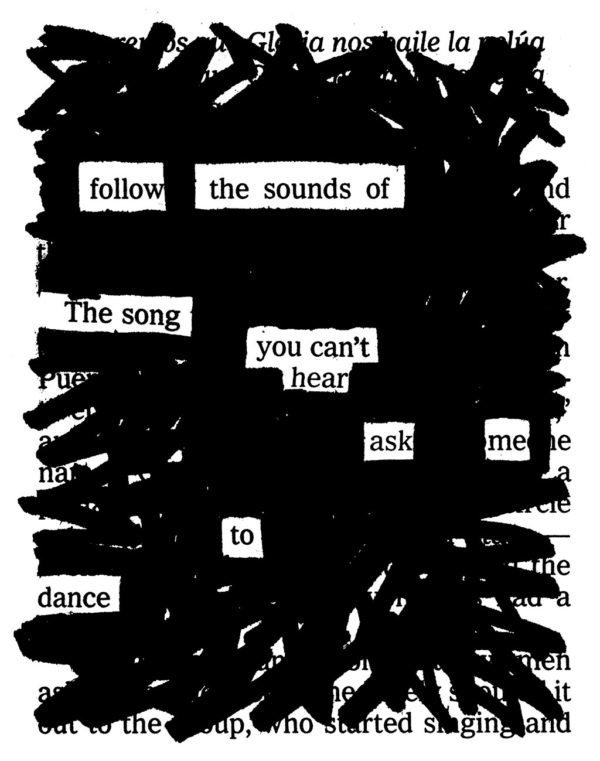



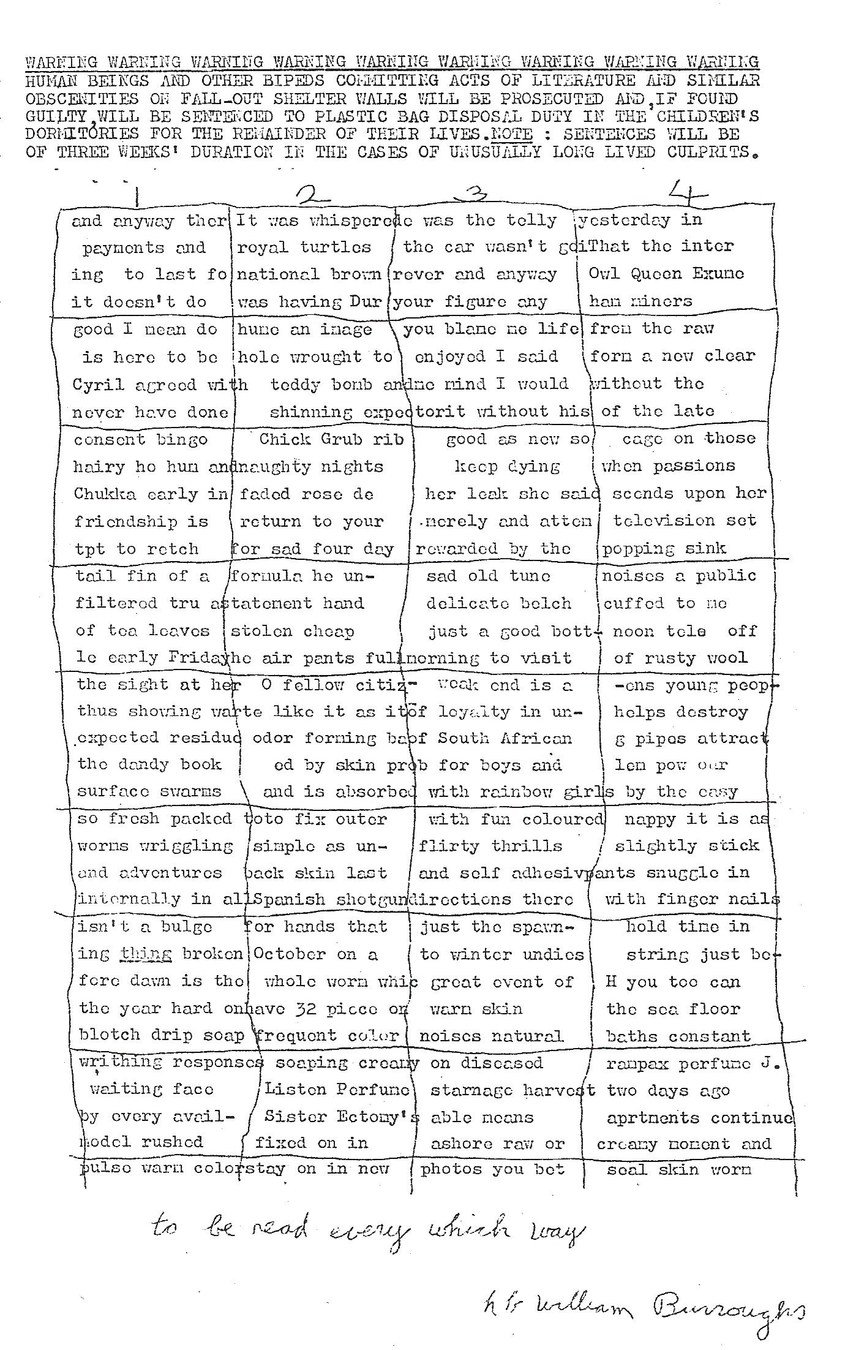




















































Or More Simply...
"If you wish to make an apple pie from scratch
you must first invent the universe"
Carl Sagan
Astrophysicist
















Or More Simply...
"If you wish to make an apple pie from scratch
you must first invent the universe"
Carl Sagan
Astrophysicist



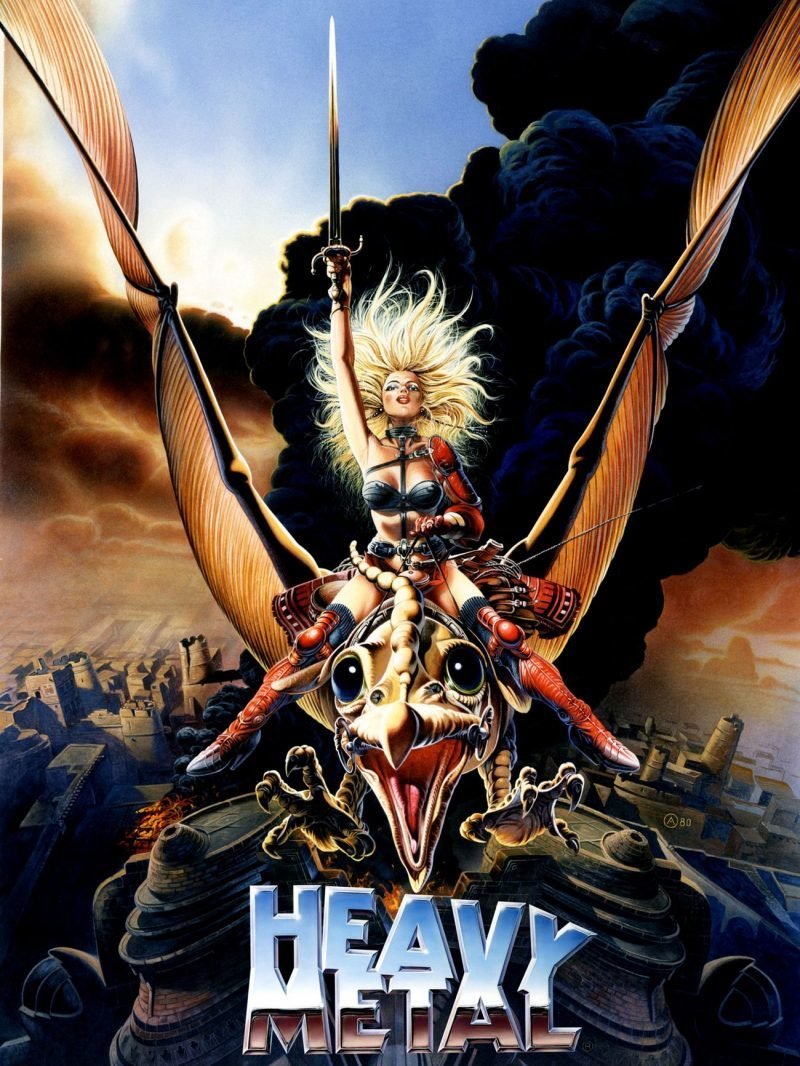













Or More Simply...
"If you wish to make an apple pie from scratch
you must first invent the universe"
Carl Sagan
Astrophysicist


















Or More Simply...
"If you wish to make an apple pie from scratch
you must first invent the universe"
Carl Sagan
Astrophysicist





The Death of Web Design
Cap Watkins
The Boring Designer (2019)
"Whenever I'm looking at a product designer's work, I find myself continuously asking the same question: which solution is the boring one? Maybe it's born out of seeing apps choose flash over function, or trying to understand just one too many indecipherable icons-as-buttons."


Cap Watkins
The Boring Designer (2019)
"With infinite time and resources we could do anything, but the boring designer knows we have neither of those things. We have super talented people working together for a finite period of time.[...] If there's The Big Idea, the boring designer is fantastic at finding a reasonable step one instead of making The Big Idea the starting line."

Jacob Nielsen
End of Web Design (2000)
"it has become more common for websites to rely on syndicated content [...] becomes necessary to restrict the content design to a few mechanisms that will work everywhere, such as headlines, bulleted lists, and highlighted keywords. [...] As long as everything is about the same, it works. Anything too special and you have a conflict."

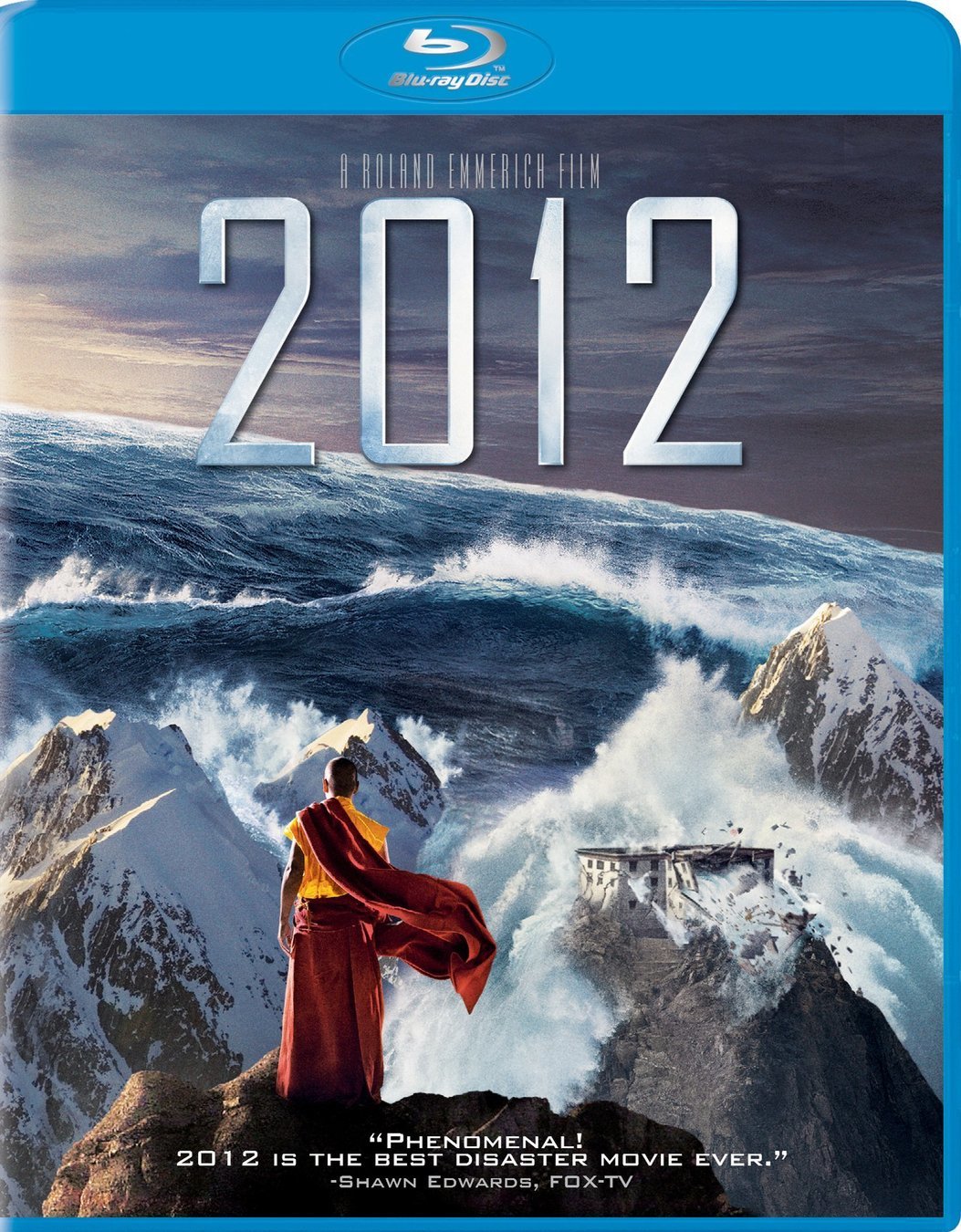
Jacob Nielsen
End of Web Design (2000)
"Users spend most of their time on other sites. This means that users prefer your site to work the same way as all the other sites they already know. [...] It has long been true that websites do more business the more standardized their design is. Think Yahoo and Amazon. Think "shopping cart" and the silly little icon. Think blue text links."

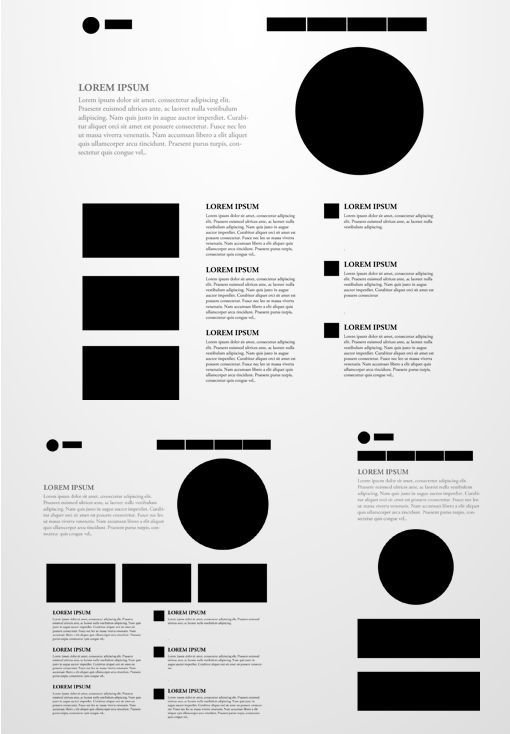
The Death of Web Design
Cap Watkins
The Boring Designer (2019)
"Whenever I'm looking at a product designer's work, I find myself continuously asking the same question: which solution is the boring one? Maybe it's born out of seeing apps choose flash over function, or trying to understand just one too many indecipherable icons-as-buttons."


Cap Watkins
The Boring Designer (2019)
"With infinite time and resources we could do anything, but the boring designer knows we have neither of those things. We have super talented people working together for a finite period of time.[...] If there's The Big Idea, the boring designer is fantastic at finding a reasonable step one instead of making The Big Idea the starting line."

Jacob Nielsen
End of Web Design (2000)
"it has become more common for websites to rely on syndicated content [...] becomes necessary to restrict the content design to a few mechanisms that will work everywhere, such as headlines, bulleted lists, and highlighted keywords. [...] As long as everything is about the same, it works. Anything too special and you have a conflict."


Jacob Nielsen
End of Web Design (2000)
"Users spend most of their time on other sites. This means that users prefer your site to work the same way as all the other sites they already know. [...] It has long been true that websites do more business the more standardized their design is. Think Yahoo and Amazon. Think "shopping cart" and the silly little icon. Think blue text links."


The Death of Web Design
Cap Watkins
The Boring Designer (2019)
"Whenever I'm looking at a product designer's work, I find myself continuously asking the same question: which solution is the boring one? Maybe it's born out of seeing apps choose flash over function, or trying to understand just one too many indecipherable icons-as-buttons."


Cap Watkins
The Boring Designer (2019)
"With infinite time and resources we could do anything, but the boring designer knows we have neither of those things. We have super talented people working together for a finite period of time.[...] If there's The Big Idea, the boring designer is fantastic at finding a reasonable step one instead of making The Big Idea the starting line."

Jacob Nielsen
End of Web Design (2000)
"it has become more common for websites to rely on syndicated content [...] becomes necessary to restrict the content design to a few mechanisms that will work everywhere, such as headlines, bulleted lists, and highlighted keywords. [...] As long as everything is about the same, it works. Anything too special and you have a conflict."


Jacob Nielsen
End of Web Design (2000)


"Users spend most of their time on other sites. This means that users prefer your site to work the same way as all the other sites they already know. [...] It has long been true that websites do more business the more standardized their design is. Think Yahoo and Amazon. Think "shopping cart" and the silly little icon. Think blue text links."
The Death of Web Design
Cap Watkins
The Boring Designer (2019)
"Whenever I'm looking at a product designer's work, I find myself continuously asking the same question: which solution is the boring one? Maybe it's born out of seeing apps choose flash over function, or trying to understand just one too many indecipherable icons-as-buttons."


Cap Watkins
The Boring Designer (2019)
"With infinite time and resources we could do anything, but the boring designer knows we have neither of those things. We have super talented people working together for a finite period of time.[...] If there's The Big Idea, the boring designer is fantastic at finding a reasonable step one instead of making The Big Idea the starting line."

Jacob Nielsen
End of Web Design (2000)
"it has become more common for websites to rely on syndicated content [...] becomes necessary to restrict the content design to a few mechanisms that will work everywhere, such as headlines, bulleted lists, and highlighted keywords. [...] As long as everything is about the same, it works. Anything too special and you have a conflict."


Jacob Nielsen
End of Web Design (2000)


"Users spend most of their time on other sites. This means that users prefer your site to work the same way as all the other sites they already know. [...] It has long been true that websites do more business the more standardized their design is. Think Yahoo and Amazon. Think "shopping cart" and the silly little icon. Think blue text links."
The Death of Web Design
Cap Watkins
The Boring Designer (2019)
"Whenever I'm looking at a product designer's work, I find myself continuously asking the same question: which solution is the boring one? Maybe it's born out of seeing apps choose flash over function, or trying to understand just one too many indecipherable icons-as-buttons."


Cap Watkins
The Boring Designer (2019)
"With infinite time and resources we could do anything, but the boring designer knows we have neither of those things. We have super talented people working together for a finite period of time.[...] If there's The Big Idea, the boring designer is fantastic at finding a reasonable step one instead of making The Big Idea the starting line."

Jacob Nielsen
End of Web Design (2000)
"it has become more common for websites to rely on syndicated content [...] becomes necessary to restrict the content design to a few mechanisms that will work everywhere, such as headlines, bulleted lists, and highlighted keywords. [...] As long as everything is about the same, it works. Anything too special and you have a conflict."


Jacob Nielsen
End of Web Design (2000)


"Users spend most of their time on other sites. This means that users prefer your site to work the same way as all the other sites they already know. [...] It has long been true that websites do more business the more standardized their design is. Think Yahoo and Amazon. Think "shopping cart" and the silly little icon. Think blue text links."
The Death of Web Design
Cap Watkins
The Boring Designer (2019)
"Whenever I'm looking at a product designer's work, I find myself continuously asking the same question: which solution is the boring one? Maybe it's born out of seeing apps choose flash over function, or trying to understand just one too many indecipherable icons-as-buttons."


Cap Watkins
The Boring Designer (2019)
"With infinite time and resources we could do anything, but the boring designer knows we have neither of those things. We have super talented people working together for a finite period of time.[...] If there's The Big Idea, the boring designer is fantastic at finding a reasonable step one instead of making The Big Idea the starting line."

Jacob Nielsen
End of Web Design (2000)
"it has become more common for websites to rely on syndicated content [...] becomes necessary to restrict the content design to a few mechanisms that will work everywhere, such as headlines, bulleted lists, and highlighted keywords. [...] As long as everything is about the same, it works. Anything too special and you have a conflict."


Jacob Nielsen
End of Web Design (2000)


"Users spend most of their time on other sites. This means that users prefer your site to work the same way as all the other sites they already know. [...] It has long been true that websites do more business the more standardized their design is. Think Yahoo and Amazon. Think "shopping cart" and the silly little icon. Think blue text links."
When Good Design
Becomes Bad Design


What I Wish I
Knew in 2012

?
2. Design happens at the
spaces in-between
"Perception is influenced not only by the building blocks such as color palette and typeface, but the relationships between them. It’s not enough to use headings and colors across the modules consistently. We should also be aware of the unique proportions and combinations that make the product feel a certain way. How do the colors relate to one another? How does the imagery relate to the typography? How does the typography relate to the spacing?"
Alla Kholmatova
Design Systems (2017)

When Good Design
Becomes Bad Design


What I Wish I
Knew in 2012

?
Alla Kholmatova
Design Systems (2017)

"Perception is influenced not only by the building blocks such as color palette and typeface, but the relationships between them. It’s not enough to use headings and colors across the modules consistently. We should also be aware of the unique proportions and combinations that make the product feel a certain way. How do the colors relate to one another? How does the imagery relate to the typography? How does the typography relate to the spacing?"
2. Design happens at the
spaces in-between
When Good Design
Becomes Bad Design


What I Wish I
Knew in 2012

?
Alla Kholmatova
Design Systems (2017)

"Perception is influenced not only by the building blocks such as color palette and typeface, but the relationships between them. It’s not enough to use headings and colors across the modules consistently. We should also be aware of the unique proportions and combinations that make the product feel a certain way. How do the colors relate to one another? How does the imagery relate to the typography? How does the typography relate to the spacing?"
2. Design happens at the
spaces in-between
When Good Design
Becomes Bad Design


What I Wish I
Knew in 2012

?
Alla Kholmatova
Design Systems (2017)

"Perception is influenced not only by the building blocks such as color palette and typeface, but the relationships between them. It’s not enough to use headings and colors across the modules consistently. We should also be aware of the unique proportions and combinations that make the product feel a certain way. How do the colors relate to one another? How does the imagery relate to the typography? How does the typography relate to the spacing?"
2. Design happens at the
spaces in-between
When Good Design
Becomes Bad Design


What I Wish I
Knew in 2012

?
Alla Kholmatova
Design Systems (2017)

"Perception is influenced not only by the building blocks such as color palette and typeface, but the relationships between them. It’s not enough to use headings and colors across the modules consistently. We should also be aware of the unique proportions and combinations that make the product feel a certain way. How do the colors relate to one another? How does the imagery relate to the typography? How does the typography relate to the spacing?"
2. Design happens at the
spaces in-between
When Good Design
Becomes Bad Design


What I Wish I
Knew in 2012

?
Alla Kholmatova
Design Systems (2017)

"Perception is influenced not only by the building blocks such as color palette and typeface, but the relationships between them. It’s not enough to use headings and colors across the modules consistently. We should also be aware of the unique proportions and combinations that make the product feel a certain way. How do the colors relate to one another? How does the imagery relate to the typography? How does the typography relate to the spacing?"
2. Design happens at the
spaces in-between
When Good Design
Becomes Bad Design


What I Wish I
Knew in 2012

?
Alla Kholmatova
Design Systems (2017)

"Perception is influenced not only by the building blocks such as color palette and typeface, but the relationships between them. It’s not enough to use headings and colors across the modules consistently. We should also be aware of the unique proportions and combinations that make the product feel a certain way. How do the colors relate to one another? How does the imagery relate to the typography? How does the typography relate to the spacing?"
2. Design happens at the
spaces in-between
When Good Design
Becomes Bad Design


What I Wish I
Knew in 2012

?
Alla Kholmatova
Design Systems (2017)

"Perception is influenced not only by the building blocks such as color palette and typeface, but the relationships between them. It’s not enough to use headings and colors across the modules consistently. We should also be aware of the unique proportions and combinations that make the product feel a certain way. How do the colors relate to one another? How does the imagery relate to the typography? How does the typography relate to the spacing?"
2. Design happens at the
spaces in-between
Stefan Sagmeister
How Good is Good? (2004)
"... an art director in England discussing his award winning campaign ad campaign for an association for the blind, featuring a striking image of a guide dog with human eyes stripped in. He mentioned that he knew that a picture of a cute puppy would have raised more donations."

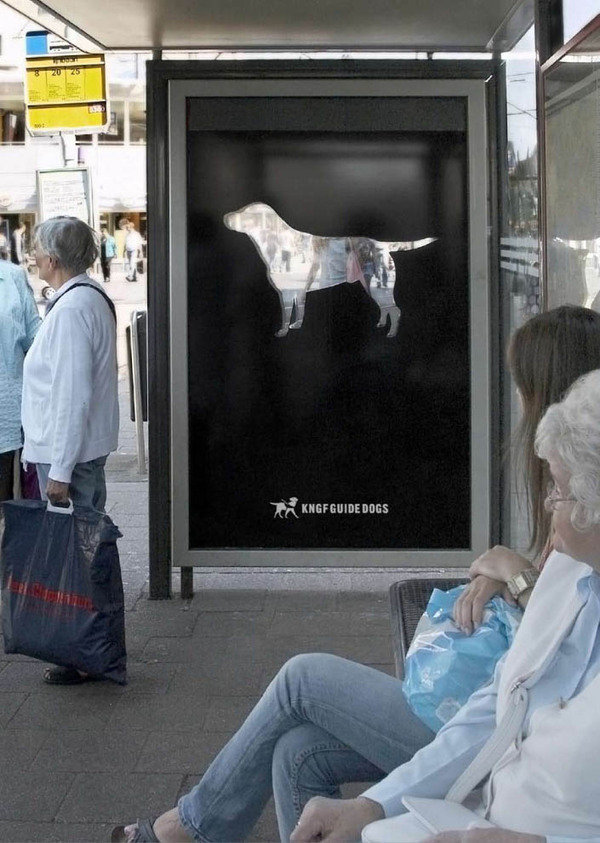

Cap Watkins
The Boring Designer (2019)
"Whenever I'm looking at a product designer's work, I find myself continuously asking the same question: which solution is the boring one? Maybe it's born out of seeing apps choose flash over function, or trying to understand just one too many indecipherable icons-as-buttons."

3. Cleverness has a Cost
Stefan Sagmeister
How Good is Good? (2004)
"... an art director in England discussing his award winning campaign ad campaign for an association for the blind, featuring a striking image of a guide dog with human eyes stripped in. He mentioned that he knew that a picture of a cute puppy would have raised more donations."



Cap Watkins
The Boring Designer (2019)
"Whenever I'm looking at a product designer's work, I find myself continuously asking the same question: which solution is the boring one? Maybe it's born out of seeing apps choose flash over function, or trying to understand just one too many indecipherable icons-as-buttons."

3. Cleverness has a Cost
Stefan Sagmeister
How Good is Good? (2004)
"... an art director in England discussing his award winning campaign ad campaign for an association for the blind, featuring a striking image of a guide dog with human eyes stripped in. He mentioned that he knew that a picture of a cute puppy would have raised more donations."



Cap Watkins
The Boring Designer (2019)
"Whenever I'm looking at a product designer's work, I find myself continuously asking the same question: which solution is the boring one? Maybe it's born out of seeing apps choose flash over function, or trying to understand just one too many indecipherable icons-as-buttons."

3. Cleverness has a Cost
Stefan Sagmeister
How Good is Good? (2004)
"... an art director in England discussing his award winning campaign ad campaign for an association for the blind, featuring a striking image of a guide dog with human eyes stripped in. He mentioned that he knew that a picture of a cute puppy would have raised more donations."



Cap Watkins
The Boring Designer (2019)
"Whenever I'm looking at a product designer's work, I find myself continuously asking the same question: which solution is the boring one? Maybe it's born out of seeing apps choose flash over function, or trying to understand just one too many indecipherable icons-as-buttons."

3. Cleverness has a Cost
Stefan Sagmeister
How Good is Good? (2004)
"... an art director in England discussing his award winning campaign ad campaign for an association for the blind, featuring a striking image of a guide dog with human eyes stripped in. He mentioned that he knew that a picture of a cute puppy would have raised more donations."



Cap Watkins
The Boring Designer (2019)

3. Cleverness has a Cost
"Whenever I'm looking at a product designer's work, I find myself continuously asking the same question: which solution is the boring one? Maybe it's born out of seeing apps choose flash over function, or trying to understand just one too many indecipherable icons-as-buttons."
Stefan Sagmeister
How Good is Good? (2004)
"... an art director in England discussing his award winning campaign ad campaign for an association for the blind, featuring a striking image of a guide dog with human eyes stripped in. He mentioned that he knew that a picture of a cute puppy would have raised more donations."



Cap Watkins
The Boring Designer (2019)

3. Cleverness has a Cost
"With infinite time and resources we could do anything, but the boring designer knows we have neither of those things. We have super talented people working together for a finite period of time. [...] Sometimes that means re-skinning a UI and making some light design/copy changes to enable the engineering team to focus on making the page loads lightning fast."
Stefan Sagmeister
How Good is Good? (2004)
"... an art director in England discussing his award winning campaign ad campaign for an association for the blind, featuring a striking image of a guide dog with human eyes stripped in. He mentioned that he knew that a picture of a cute puppy would have raised more donations."



Cap Watkins
The Boring Designer (2019)

3. Cleverness has a Cost
"With infinite time and resources we could do anything, but the boring designer knows we have neither of those things. We have super talented people working together for a finite period of time. [...] Sometimes that means re-skinning a UI and making some light design/copy changes to enable the engineering team to focus on making the page loads lightning fast."
Stefan Sagmeister
How Good is Good? (2004)
"... an art director in England discussing his award winning campaign ad campaign for an association for the blind, featuring a striking image of a guide dog with human eyes stripped in. He mentioned that he knew that a picture of a cute puppy would have raised more donations."



Cap Watkins
The Boring Designer (2019)

3. Cleverness has a Cost
"With infinite time and resources we could do anything, but the boring designer knows we have neither of those things. We have super talented people working together for a finite period of time. [...] Sometimes that means re-skinning a UI and making some light design/copy changes to enable the engineering team to focus on making the page loads lightning fast."
Stefan Sagmeister
How Good is Good? (2004)
"... an art director in England discussing his award winning campaign ad campaign for an association for the blind, featuring a striking image of a guide dog with human eyes stripped in. He mentioned that he knew that a picture of a cute puppy would have raised more donations."



Cap Watkins
The Boring Designer (2019)

3. Cleverness has a Cost
"With infinite time and resources we could do anything, but the boring designer knows we have neither of those things. We have super talented people working together for a finite period of time. [...] Sometimes that means re-skinning a UI and making some light design/copy changes to enable the engineering team to focus on making the page loads lightning fast."
Stefan Sagmeister
How Good is Good? (2004)
"... an art director in England discussing his award winning campaign ad campaign for an association for the blind, featuring a striking image of a guide dog with human eyes stripped in. He mentioned that he knew that a picture of a cute puppy would have raised more donations."



Cap Watkins
The Boring Designer (2019)

3. Cleverness has a Cost
"With infinite time and resources we could do anything, but the boring designer knows we have neither of those things. We have super talented people working together for a finite period of time. [...] Sometimes that means re-skinning a UI and making some light design/copy changes to enable the engineering team to focus on making the page loads lightning fast."
Stefan Sagmeister
How Good is Good? (2004)
"... an art director in England discussing his award winning campaign ad campaign for an association for the blind, featuring a striking image of a guide dog with human eyes stripped in. He mentioned that he knew that a picture of a cute puppy would have raised more donations."



Cap Watkins
The Boring Designer (2019)

3. Cleverness has a Cost
"With infinite time and resources we could do anything, but the boring designer knows we have neither of those things. We have super talented people working together for a finite period of time. [...] Sometimes that means re-skinning a UI and making some light design/copy changes to enable the engineering team to focus on making the page loads lightning fast."
Stefan Sagmeister
How Good is Good? (2004)
"... an art director in England discussing his award winning campaign ad campaign for an association for the blind, featuring a striking image of a guide dog with human eyes stripped in. He mentioned that he knew that a picture of a cute puppy would have raised more donations."



Cap Watkins
The Boring Designer (2019)

3. Cleverness has a Cost
"With infinite time and resources we could do anything, but the boring designer knows we have neither of those things. We have super talented people working together for a finite period of time. [...] Sometimes that means re-skinning a UI and making some light design/copy changes to enable the engineering team to focus on making the page loads lightning fast."
Good Design?


Stefan Sagmeister
How Good is Good? (2004)
"... an art director in England discussing his award winning campaign ad campaign for an association for the blind, featuring a striking image of a guide dog with human eyes stripped in. He mentioned that he knew that a picture of a cute puppy would have raised more donations."

Good Design?
Stefan Sagmeister
How Good is Good? (2004)
"... an art director in England discussing his award winning campaign ad campaign for an association for the blind, featuring a striking image of a guide dog with human eyes stripped in. He mentioned that he knew that a picture of a cute puppy would have raised more donations."



Good Design?
Stefan Sagmeister
How Good is Good? (2004)
"... an art director in England discussing his award winning campaign ad campaign for an association for the blind, featuring a striking image of a guide dog with human eyes stripped in. He mentioned that he knew that a picture of a cute puppy would have raised more donations."



Good Design?
Stefan Sagmeister
How Good is Good? (2004)



"... an art director in England discussing his award winning campaign ad campaign for an association for the blind, featuring a striking image of a guide dog with human eyes stripped in. He mentioned that he knew that a picture of a cute puppy would have raised more donations."
Good Design?
Stefan Sagmeister
How Good is Good? (2004)



"... an art director in England discussing his award winning campaign ad campaign for an association for the blind, featuring a striking image of a guide dog with human eyes stripped in. He mentioned that he knew that a picture of a cute puppy would have raised more donations."
Good Design?
Stefan Sagmeister
How Good is Good? (2004)



"... an art director in England discussing his award winning campaign ad campaign for an association for the blind, featuring a striking image of a guide dog with human eyes stripped in. He mentioned that he knew that a picture of a cute puppy would have raised more donations."
Good Design?
Stefan Sagmeister
How Good is Good? (2004)



"... an art director in England discussing his award winning campaign ad campaign for an association for the blind, featuring a striking image of a guide dog with human eyes stripped in. He mentioned that he knew that a picture of a cute puppy would have raised more donations."
Good Design?
Stefan Sagmeister
How Good is Good? (2004)



"... an art director in England discussing his award winning campaign ad campaign for an association for the blind, featuring a striking image of a guide dog with human eyes stripped in. He mentioned that he knew that a picture of a cute puppy would have raised more donations."

Good Design?
Stefan Sagmeister
How Good is Good? (2004)



"... an art director in England discussing his award winning campaign ad campaign for an association for the blind, featuring a striking image of a guide dog with human eyes stripped in. He mentioned that he knew that a picture of a cute puppy would have raised more donations."

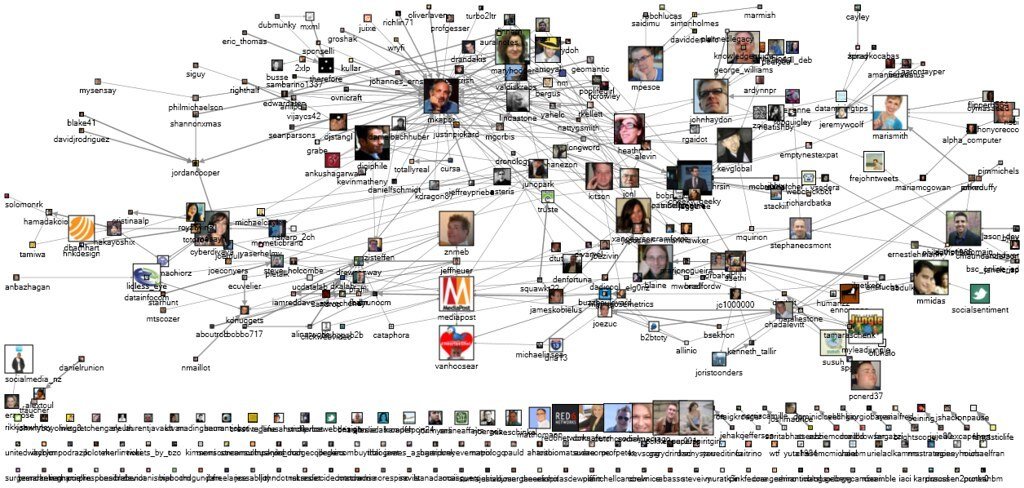
4. Good Designers
can make things worse


The Entry Point









The beginning








The beginning
2013
The beginning








2015 2016 2017 2018 2019 2020 2021 2022

The beginning








2015 2016 2017 2018 2019 2020 2021 2022

The beginning








2015 2016 2017 2018 2019 2020 2021 2022



The beginning








2015 2016 2017 2018 2019 2020 2021 2022




Inflection Point

Investigation 🕵️




Investigation 🕵️




Tag Team




When Good design
becomes Worse design
than No design

Ms. X 👤

Career Change
"So I actually studied architecture. I have a Master's Degree in that. I coded in Python as part of my thesis, I built like an algorithm for my thesis. After working in the industry for a while I really missed the coding, and then I started looking around for development jobs, very fresh, like I had never worked on a team or anything, and managed to get some contract work."

Career Change
"So I actually studied architecture. I have a Master's Degree in that. I coded in Python as part of my thesis, I built like an algorithm for my thesis. After working in the industry for a while I really missed the coding, and then I started looking around for development jobs, very fresh, like I had never worked on a team or anything, and managed to get some contract work."
🏛️

Career Change
"So I actually studied architecture. I have a Master's Degree in that. I coded in Python as part of my thesis, I built like an algorithm for my thesis. After working in the industry for a while I really missed the coding, and then I started looking around for development jobs, very fresh, like I had never worked on a team or anything, and managed to get some contract work."
🏛️

Career Change
"So I actually studied architecture. I have a Master's Degree in that. I coded in Python as part of my thesis, I built like an algorithm for my thesis. After working in the industry for a while I really missed the coding, and then I started looking around for development jobs, very fresh, like I had never worked on a team or anything, and managed to get some contract work."
🏛️

👩💻
Career Change
"So I actually studied architecture. I have a Master's Degree in that. I coded in Python as part of my thesis, I built like an algorithm for my thesis. After working in the industry for a while I really missed the coding, and then I started looking around for development jobs, very fresh, like I had never worked on a team or anything, and managed to get some contract work."
🏛️
👩💻

Career Change
"So I actually studied architecture. I have a Master's Degree in that. I coded in Python as part of my thesis, I built like an algorithm for my thesis. After working in the industry for a while I really missed the coding, and then I started looking around for development jobs, very fresh, like I had never worked on a team or anything, and managed to get some contract work."
🏛️
🐣

👩💻
Career Change
"So I actually studied architecture. I have a Master's Degree in that. I coded in Python as part of my thesis, I built like an algorithm for my thesis. After working in the industry for a while I really missed the coding, and then I started looking around for development jobs, very fresh, like I had never worked on a team or anything, and managed to get some contract work."
🏛️
🐣
👩💻

Moving Fast
"We were making a lot of progress. I think we were like, maybe two or three months away from completion, which was about two months delay. So which is not too bad. Yeah, we were hacking it together. But we were like a team, you know, and there was no real design system. But everyone was working together. Hey, if you're doing this page, I've done this before, you know, like, you can use it."
🏛️
🐣
📈

👩💻
Moving Fast
"We were making a lot of progress. I think we were like, maybe two or three months away from completion, which was about two months delay. So which is not too bad. Yeah, we were hacking it together. But we were like a team, you know, and there was no real design system. But everyone was working together. Hey, if you're doing this page, I've done this before, you know, like, you can use it."
🏛️
🐣
📈

👩💻
Moving Fast
"We were making a lot of progress. I think we were like, maybe two or three months away from completion, which was about two months delay. So which is not too bad. Yeah, we were hacking it together. But we were like a team, you know, and there was no real design system. But everyone was working together. Hey, if you're doing this page, I've done this before, you know, like, you can use it."
🏛️
🐣
📈

👩💻
Moving Fast
"We were making a lot of progress. I think we were like, maybe two or three months away from completion, which was about two months delay. So which is not too bad. Yeah, we were hacking it together. But we were like a team, you know, and there was no real design system. But everyone was working together. Hey, if you're doing this page, I've done this before, you know, like, you can use it."
🏛️
🐣
📈
🧵

👩💻
Moving Fast
"We were making a lot of progress. I think we were like, maybe two or three months away from completion, which was about two months delay. So which is not too bad. Yeah, we were hacking it together. But we were like a team, you know, and there was no real design system. But everyone was working together. Hey, if you're doing this page, I've done this before, you know, like, you can use it."
🏛️
🐣
📈
🧵

👩💻
Moving Fast
"We were making a lot of progress. I think we were like, maybe two or three months away from completion, which was about two months delay. So which is not too bad. Yeah, we were hacking it together. But we were like a team, you know, and there was no real design system. But everyone was working together. Hey, if you're doing this page, I've done this before, you know, like, you can use it."
🏛️
🐣
📈
🧵
🤝

👩💻
Moving Fast
"We were making a lot of progress. I think we were like, maybe two or three months away from completion, which was about two months delay. So which is not too bad. Yeah, we were hacking it together. But we were like a team, you know, and there was no real design system. But everyone was working together. Hey, if you're doing this page, I've done this before, you know, like, you can use it."
🏛️
🐣
📈
🧵
🤝

👩💻
Mr. Fix It 👤

Enter Mr. Fix It
"Since we missed the deadline, a senior team-lead was hired to bring some structure. He felt that the project
was a mess since there was no testing framework, documentation, design system or anything. There's none of that. This new team leader was like, really big into biology. So we had, we had organisms, atoms, neutrons and gluons and I swear, there were like 12 levels As far as I know."

Enter Mr. Fix It
"Since we missed the deadline, a senior team-lead was hired to bring some structure. He felt that the project
was a mess since there was no testing framework, documentation, design system or anything. There's none of that. This new team leader was like, really big into biology. So we had, we had organisms, atoms, neutrons and gluons and I swear, there were like 12 levels As far as I know."
📆

Enter Mr. Fix It
"Since we missed the deadline, a senior team-lead was hired to bring some structure. He felt that the project
was a mess since there was no testing framework, documentation, design system or anything. There's none of that. This new team leader was like, really big into biology. So we had, we had organisms, atoms, neutrons and gluons and I swear, there were like 12 levels As far as I know."
📆

Enter Mr. Fix It
"Since we missed the deadline, a senior team-lead was hired to bring some structure. He felt that the project
was a mess since there was no testing framework, documentation, design system or anything. There's none of that. This new team leader was like, really big into biology. So we had, we had organisms, atoms, neutrons and gluons and I swear, there were like 12 levels As far as I know."
📆

📚
Enter Mr. Fix It
"Since we missed the deadline, a senior team-lead was hired to bring some structure. He felt that the project
was a mess since there was no testing framework, documentation, design system or anything. There's none of that. This new team leader was like, really big into biology. So we had, we had organisms, atoms, neutrons and gluons and I swear, there were like 12 levels As far as I know."
📆

📚
🧬
Enter Mr. Fix It
"Since we missed the deadline, a senior team-lead was hired to bring some structure. He felt that the project
was a mess since there was no testing framework, documentation, design system or anything. There's none of that. This new team leader was like, really big into biology. So we had, we had organisms, atoms, neutrons and gluons and I swear, there were like 12 levels As far as I know."
📆

📚
🧬
Enter Mr. Fix It
"Since we missed the deadline, a senior team-lead was hired to bring some structure. He felt that the project
was a mess since there was no testing framework, documentation, design system or anything. There's none of that. This new team leader was like, really big into biology. So we had, we had organisms, atoms, neutrons and gluons and I swear, there were like 12 levels As far as I know."
📆

📚
🧬
A Previous Life
"When I actually worked as an architect, we did like, massive warehouses for for Pick 'n Pay. And the boss of the company, great guy, he was all about like, simplicity and replicability. And you know, just sound simple, effective. Construction, and design, obviously shaped my thinking around systems and design systems."
📆

📚
🧬
A Previous Life
"When I actually worked as an architect, we did like, massive warehouses for for Pick 'n Pay. And the boss of the company, great guy, he was all about like, simplicity and replicability. And you know, just sound simple, effective. Construction, and design, obviously shaped my thinking around systems and design systems."
📆

📚
🧬
A Previous Life
"When I actually worked as an architect, we did like, massive warehouses for for Pick 'n Pay. And the boss of the company, great guy, he was all about like, simplicity and replicability. And you know, just sound simple, effective. Construction, and design, obviously shaped my thinking around systems and design systems."
📆

📚
🧬
👯
A Previous Life
"When I actually worked as an architect, we did like, massive warehouses for for Pick 'n Pay. And the boss of the company, great guy, he was all about like, simplicity and replicability. And you know, just sound simple, effective. Construction, and design, obviously shaped my thinking around systems and design systems."
📆

📚
🧬
👯
A Previous Life
"When I actually worked as an architect, we did like, massive warehouses for for Pick 'n Pay. And the boss of the company, great guy, he was all about like, simplicity and replicability. And you know, just sound simple, effective. Construction, and design, obviously shaped my thinking around systems and design systems."
📆

📚
🧬
👯
A Previous Life
"When I actually worked as an architect, we did like, massive warehouses for for Pick 'n Pay. And the boss of the company, great guy, he was all about like, simplicity and replicability. And you know, just sound simple, effective. Construction, and design, obviously shaped my thinking around systems and design systems."
📆

📚
🧬
👯
🐣
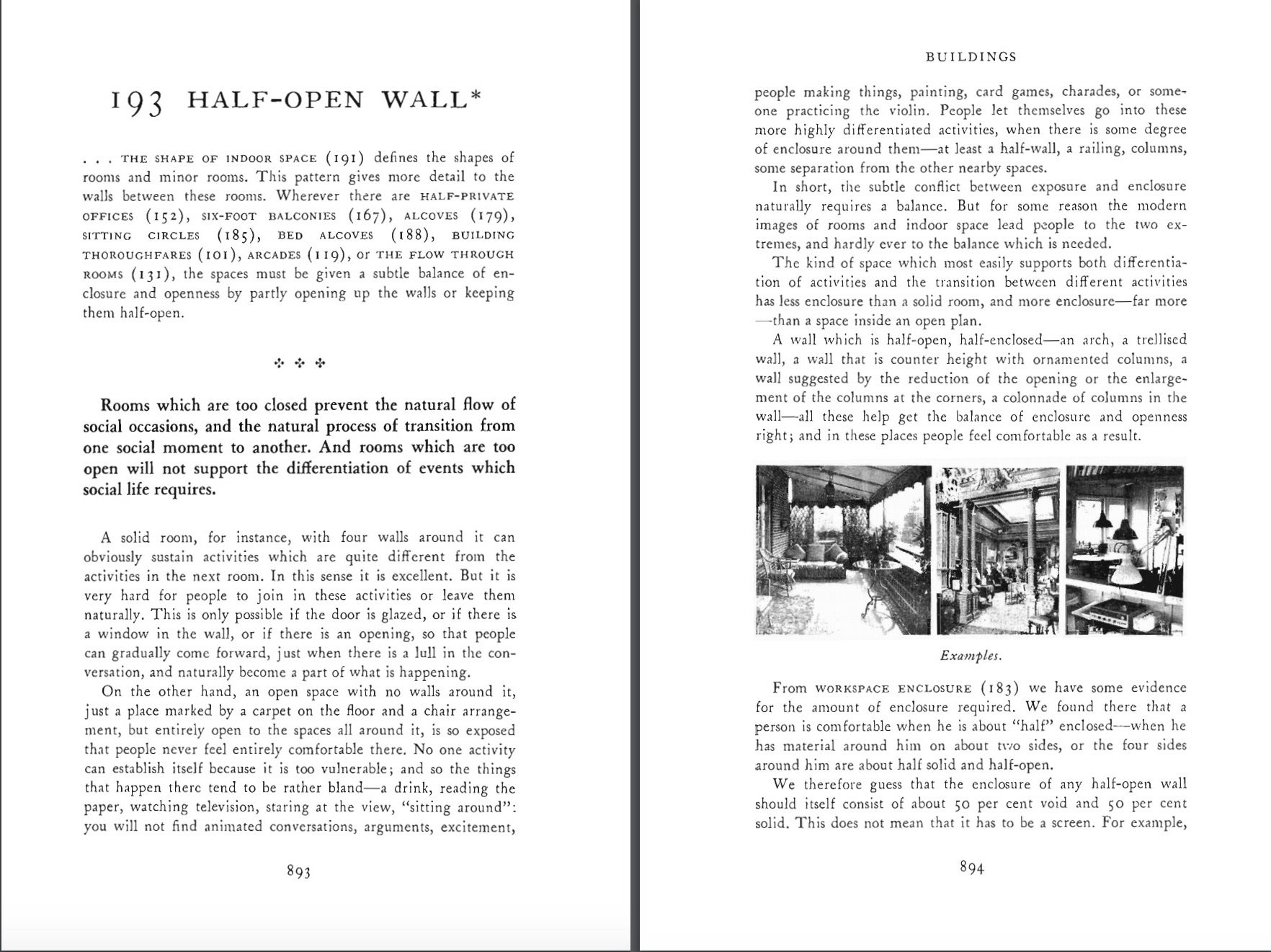

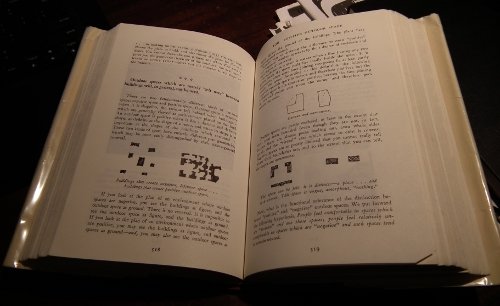

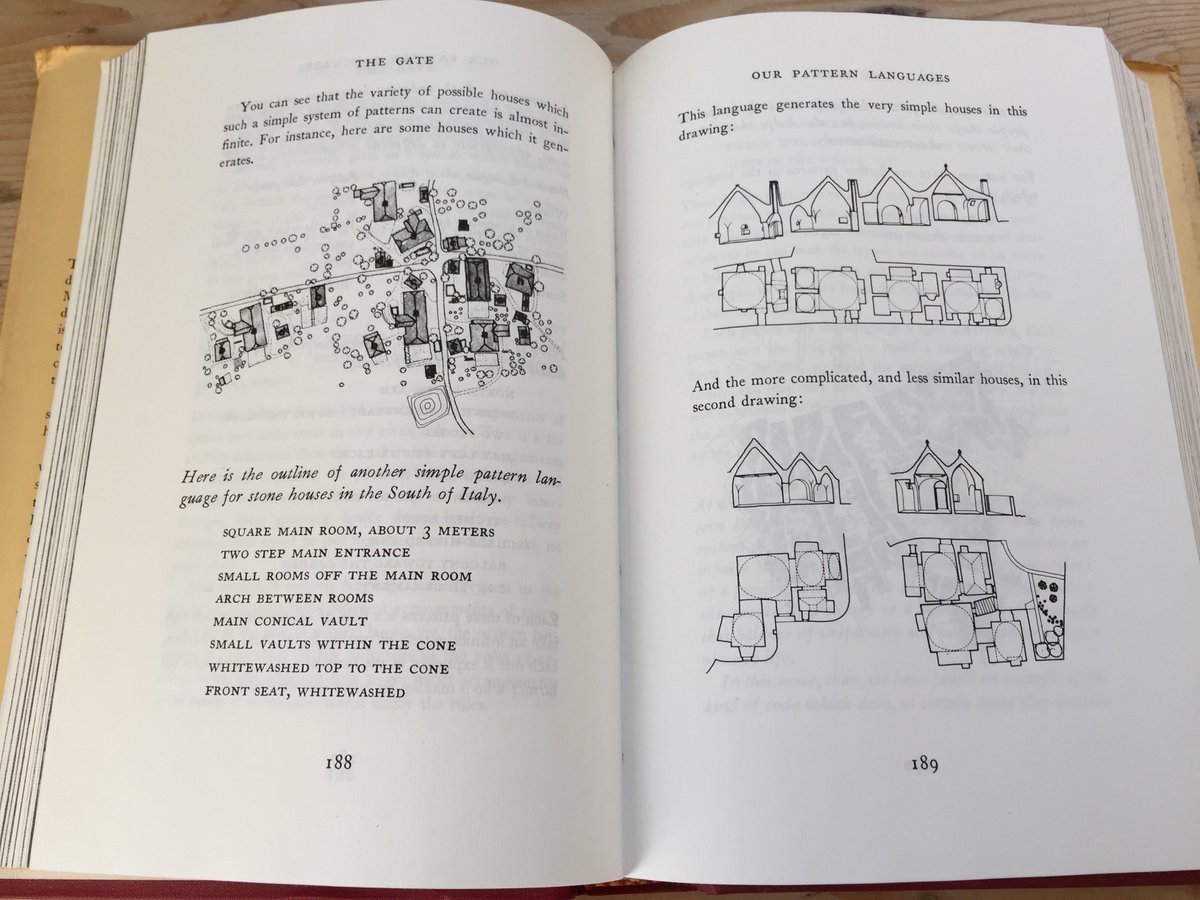
Bottom Down
"Well, the progress that we've made thus far have been using the Tailwind library, which comes with a lot of its own built-in logic. We were doing a lot overriding defaults to make the new design system work. So yeah, I guess it would have been easier to rather focus on bigger issues. We kept going back and forth, back and forth - do it this way, then you do it. No, not like that like this. "
📆

📚
🧬
👯
🐣
Bottom Down
"Well, the progress that we've made thus far have been using the Tailwind library, which comes with a lot of its own built-in logic. We were doing a lot overriding defaults to make the new design system work. So yeah, I guess it would have been easier to rather focus on bigger issues. We kept going back and forth, back and forth - do it this way, then you do it. No, not like that like this. "
📆

📚
🧬
👯
🐣
🚛
Bottom Down
"Well, the progress that we've made thus far have been using the Tailwind library, which comes with a lot of its own built-in logic. We were doing a lot overriding defaults to make the new design system work. So yeah, I guess it would have been easier to rather focus on bigger issues. We kept going back and forth, back and forth - do it this way, then you do it. No, not like that like this. "
📆

📚
🧬
👯
🐣
🚛
Bottom Down
"Well, the progress that we've made thus far have been using the Tailwind library, which comes with a lot of its own built-in logic. We were doing a lot overriding defaults to make the new design system work. So yeah, I guess it would have been easier to rather focus on bigger issues. We kept going back and forth, back and forth - do it this way, then you do it. No, not like that like this. "
📆

📚
🧬
👯
🐣
🚛
Bottom Down
"Well, the progress that we've made thus far have been using the Tailwind library, which comes with a lot of its own built-in logic. We were doing a lot overriding defaults to make the new design system work. So yeah, I guess it would have been easier to rather focus on bigger issues. We kept going back and forth, back and forth - do it this way, then you do it. No, not like that like this. "
📆

📚
🧬
👯
🐣
🚛
🔬
Bottom Down
"Well, the progress that we've made thus far have been using the Tailwind library, which comes with a lot of its own built-in logic. We were doing a lot overriding defaults to make the new design system work. So yeah, I guess it would have been easier to rather focus on bigger issues. We kept going back and forth, back and forth - do it this way, then you do it. No, not like that like this. "
📆

📚
🧬
👯
🐣
🚛
🔬
Bottom Down
📆

📚
🧬
👯
🐣
"Well, the progress that we've made thus far have been using the Tailwind library, which comes with a lot of its own built-in logic. We were doing a lot overriding defaults to make the new design system work. So yeah, I guess it would have been easier to rather focus on bigger issues. We kept going back and forth, back and forth - do it this way, then you do it. No, not like that like this. "
🚛
🔬
Cross-functional Work
Adam Dunford
The Interaction Design Competency
Framework (2016)

"Interestingly, the skill or aspect with the most mentions across all job listings was 'collaborative' or the ability of the employee to cooperate and work with others"

Cross-functional Work
Adam Dunford
The Interaction Design Competency
Framework (2016)

"Interestingly, the skill or aspect with the most mentions across all job listings was 'collaborative' or the ability of the employee to cooperate and work with others"

Cross-functional Work
Adam Dunford
The Interaction Design Competency
Framework (2016)

"Interestingly, the skill or aspect with the most mentions across all job listings was 'collaborative' or the ability of the employee to cooperate and work with others"

Cross-functional Work
Adam Dunford
The Interaction Design Competency
Framework (2016)

"Interestingly, the skill or aspect with the most mentions across all job listings was 'collaborative' or the ability of the employee to cooperate and work with others"


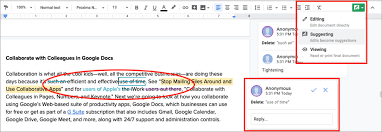

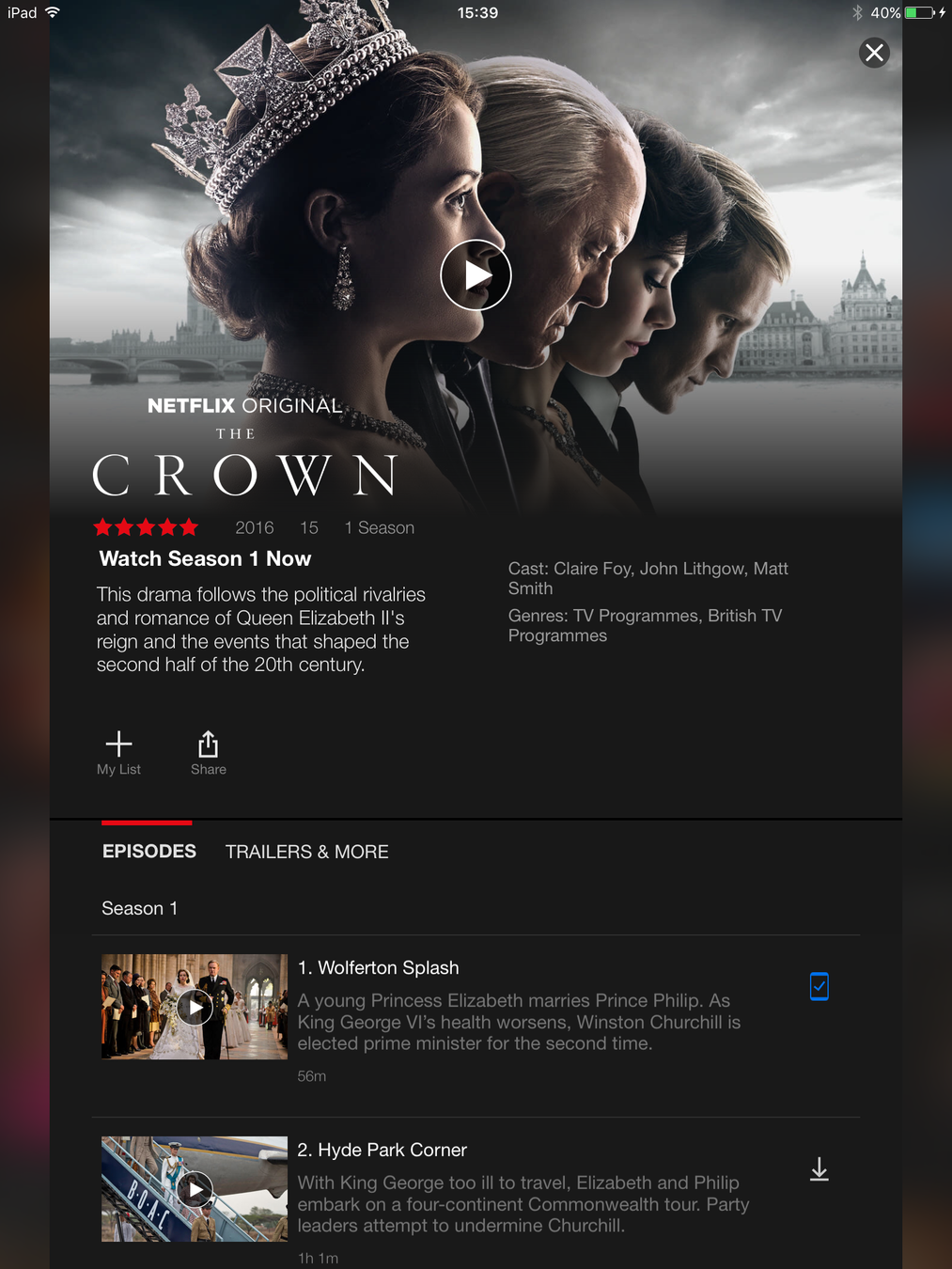







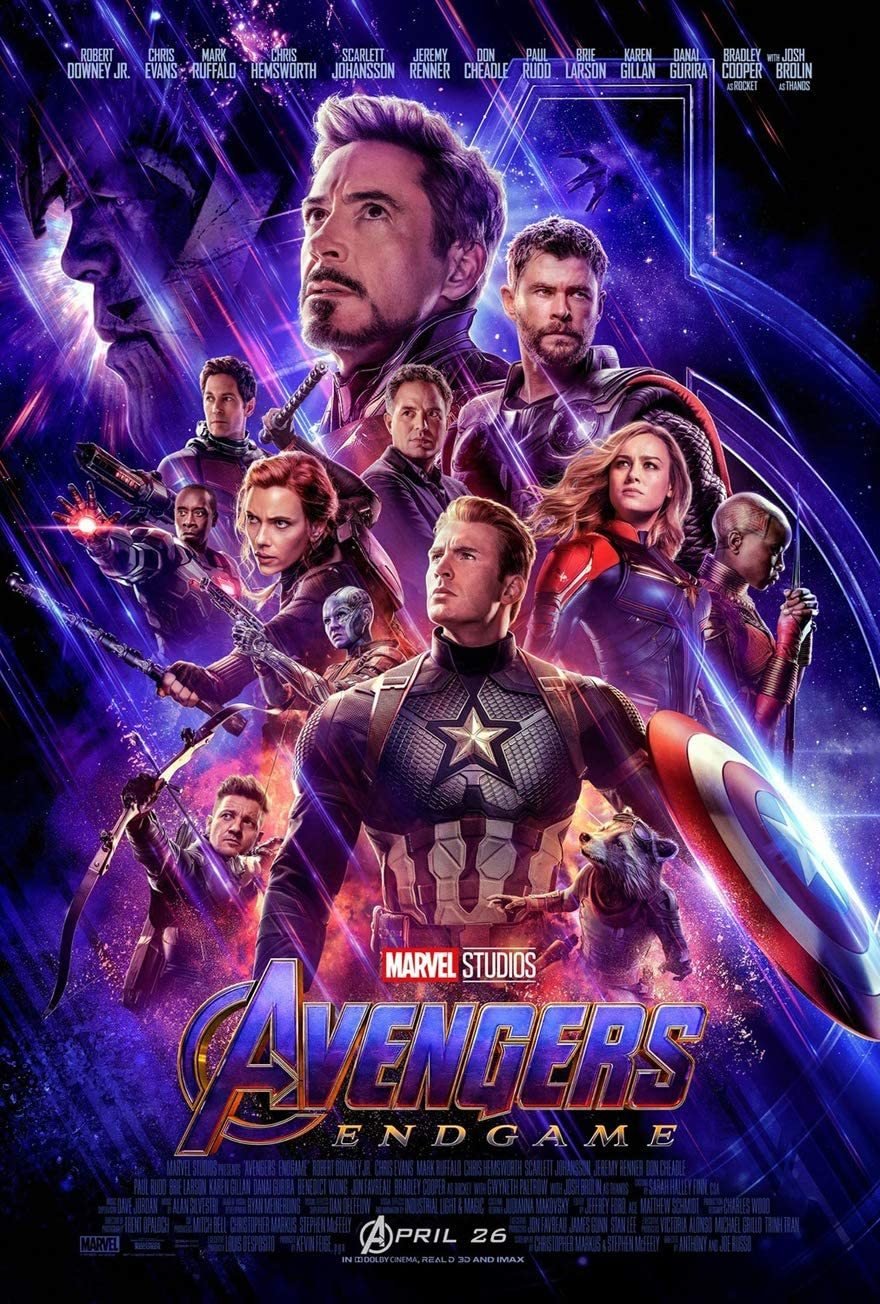
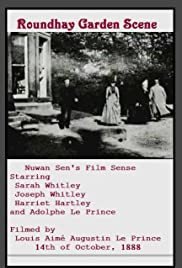
Roundhay Garden Scene (1888)
Credited Crew: 7
Marvel Avengers: Endgame (2019)
Credited Crew: 497



De$ign $ystem$ amirite?
Nathan Curtis
And You Thought Buttons
Were Easy? (2017)

"Let’s imagine you combine a designer, engineer and QA specialist to design, build, and test these buttons. If these staff cost $100/hr, and it takes this team of three 200 hours combined to design, build and test buttons at this level of quality, then buttons cost $20,000."


De$ign $ystem$ amirite?
Nathan Curtis
And You Thought Buttons
Were Easy? (2017)

"Let’s imagine you combine a designer, engineer and QA specialist to design, build, and test these buttons. If these staff cost $100/hr, and it takes this team of three 200 hours combined to design, build and test buttons at this level of quality, then buttons cost $20,000."


De$ign $ystem$ amirite?
Nathan Curtis
And You Thought Buttons
Were Easy? (2017)

"Let’s imagine you combine a designer, engineer and QA specialist to design, build, and test these buttons. If these staff cost $100/hr, and it takes this team of three 200 hours combined to design, build and test buttons at this level of quality, then buttons cost $20,000."


De$ign $ystem$ amirite?
Nathan Curtis
And You Thought Buttons
Were Easy? (2017)

"Let’s imagine you combine a designer, engineer and QA specialist to design, build, and test these buttons. If these staff cost $100/hr, and it takes this team of three 200 hours combined to design, build and test buttons at this level of quality, then buttons cost $20,000."


De$ign $ystem$ amirite?
Nathan Curtis
And You Thought Buttons
Were Easy? (2017)

"Let’s imagine you combine a designer, engineer and QA specialist to design, build, and test these buttons. If these staff cost $100/hr, and it takes this team of three 200 hours combined to design, build and test buttons at this level of quality, then buttons cost $20,000."


De$ign $ystem$ amirite?
Nathan Curtis
And You Thought Buttons
Were Easy? (2017)

"Let’s imagine you combine a designer, engineer and QA specialist to design, build, and test these buttons. If these staff cost $100/hr, and it takes this team of three 200 hours combined to design, build and test buttons at this level of quality, then buttons cost $20,000."





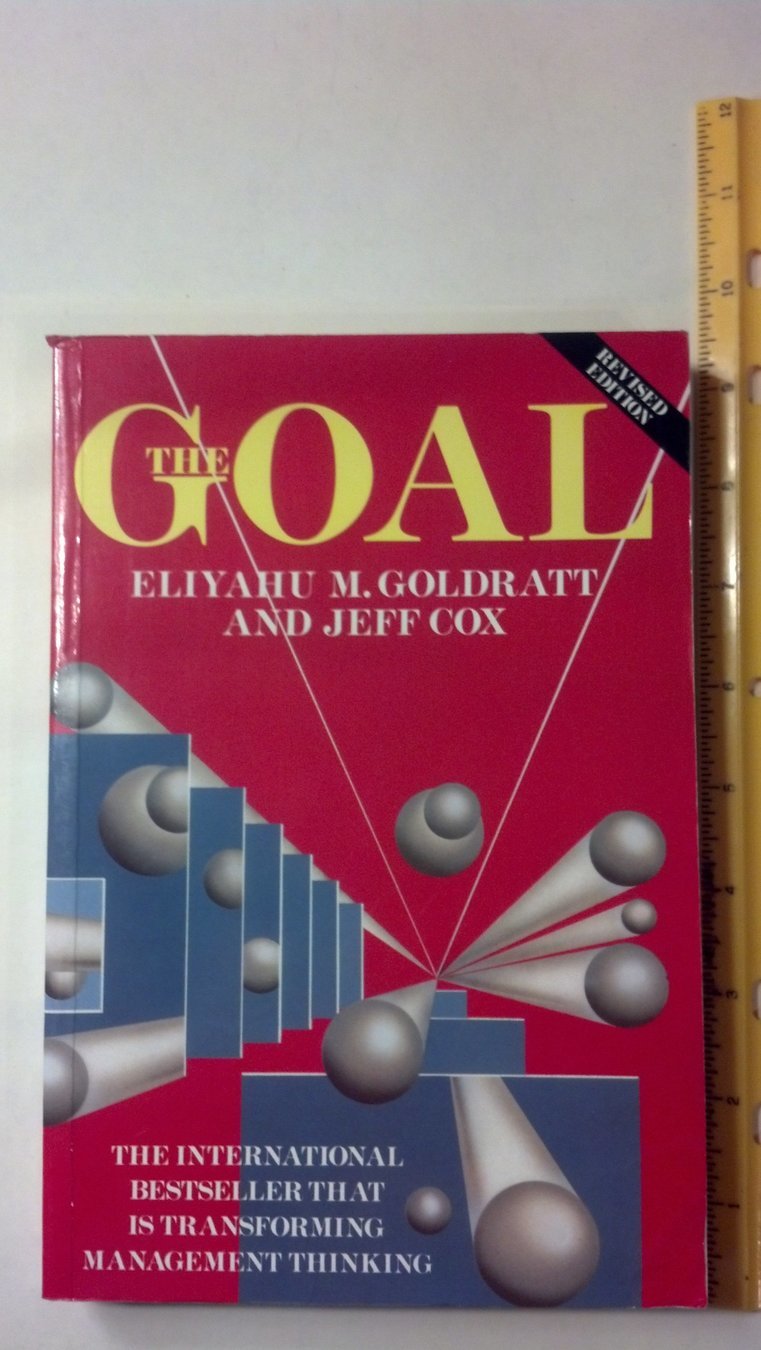
Eliyah M. Goldratt
The Goal (1984)


"Al, the trouble is there is nothing for the guys down there to do while heat-treat is cookin’ the parts. You load up one of the damn furnaces, shut the doors, and that’s it for six or eight hours, or however long it takes. What are they supposed to do? Stand around and twiddle their thumbs?’’
Uncommon Sense




Eliyah M. Goldratt
The Goal (1984)

"Al, the trouble is there is nothing for the guys down there to do while heat-treat is cookin’ the parts. You load up one of the damn furnaces, shut the doors, and that’s it for six or eight hours, or however long it takes. What are they supposed to do? Stand around and twiddle their thumbs?’’
Uncommon Sense




Eliyah M. Goldratt
The Goal (1984)

"Al, the trouble is there is nothing for the guys down there to do while heat-treat is cookin’ the parts. You load up one of the damn furnaces, shut the doors, and that’s it for six or eight hours, or however long it takes. What are they supposed to do? Stand around and twiddle their thumbs?’’
Uncommon Sense




Eliyah M. Goldratt
The Goal (1984)

"Al, the trouble is there is nothing for the guys down there to do while heat-treat is cookin’ the parts. You load up one of the damn furnaces, shut the doors, and that’s it for six or eight hours, or however long it takes. What are they supposed to do? Stand around and twiddle their thumbs?’’
Uncommon Sense




Eliyah M. Goldratt
The Goal (1984)

"Al, the trouble is there is nothing for the guys down there to do while heat-treat is cookin’ the parts. You load up one of the damn furnaces, shut the doors, and that’s it for six or eight hours, or however long it takes. What are they supposed to do? Stand around and twiddle their thumbs?’’
Uncommon Sense
The Math
The implication of these rules is that we must not seek to optimize every resource in the system [...] A system of local optimums is not an optimum system at all; it is a very inefficient system. [...] you are not increasing productivity. On the contrary, you are doing exactly the opposite. ’’

Eliyah M. Goldratt
The Goal (1984)

The Math
The implication of these rules is that we must not seek to optimize every resource in the system [...] A system of local optimums is not an optimum system at all; it is a very inefficient system. [...] you are not increasing productivity. On the contrary, you are doing exactly the opposite. ’’

Eliyah M. Goldratt
The Goal (1984)

The Math
The implication of these rules is that we must not seek to optimize every resource in the system [...] A system of local optimums is not an optimum system at all; it is a very inefficient system. [...] you are not increasing productivity. On the contrary, you are doing exactly the opposite. ’’

Eliyah M. Goldratt
The Goal (1984)

The Math
The implication of these rules is that we must not seek to optimize every resource in the system [...] A system of local optimums is not an optimum system at all; it is a very inefficient system. [...] you are not increasing productivity. On the contrary, you are doing exactly the opposite. ’’

Eliyah M. Goldratt
The Goal (1984)

The Math
The implication of these rules is that we must not seek to optimize every resource in the system [...] A system of local optimums is not an optimum system at all; it is a very inefficient system. [...] you are not increasing productivity. On the contrary, you are doing exactly the opposite. ’’

Eliyah M. Goldratt
The Goal (1984)

The Math
The implication of these rules is that we must not seek to optimize every resource in the system [...] A system of local optimums is not an optimum system at all; it is a very inefficient system. [...] you are not increasing productivity. On the contrary, you are doing exactly the opposite. ’’

Eliyah M. Goldratt
The Goal (1984)

The Math
The implication of these rules is that we must not seek to optimize every resource in the system [...] A system of local optimums is not an optimum system at all; it is a very inefficient system. [...] you are not increasing productivity. On the contrary, you are doing exactly the opposite. ’’

Eliyah M. Goldratt
The Goal (1984)

Where is the cost?






- Centralised logic and documentation
- Consistent branding and visual aesthetic
The Goal



- Time spent reverse-engineering Tailwind
- Time spent arguing over semantics
- Re-writing code to fit system
- Hiring and onboarding devs to help with above
- Centralised logic and documentation
- Consistent branding and visual aesthetic
The Cost


- Centralised logic and documentation
- Consistent branding and visual aesthetic
The Goal (Paraphrased)
We want a design system

- Time spent reverse-engineering Tailwind
- Time spent arguing over semantics
- Re-writing code to fit system
- Hiring and onboarding devs to help with above
Adding more "Design"
"So where it came from is us, the designers, you know, we saw this problem of having components that's misaligned, or creating new components out there when there's already existing component that does a similar if not the same feature or function. So from there, we ended up kind of using zero height to really document all of our designs and back it up as code."

Mr. Someone Completely Different
"So where it came from is us, the designers, you know, we saw this problem of having components that's misaligned, or creating new components out there when there's already existing component that does a similar if not the same feature or function. So from there, we ended up kind of using zero height to really document all of our designs and back it up as code."

Mr. Someone Completely Different
Adding more "Design"
"So where it came from is us, the designers, you know, we saw this problem of having components that's misaligned, or creating new components out there when there's already existing component that does a similar if not the same feature or function. So from there, we ended up kind of using zero height to really document all of our designs and back it up as code."

Mr. Someone Completely Different
Adding more "Design"
"So where it came from is us, the designers, you know, we saw this problem of having components that's misaligned, or creating new components out there when there's already existing component that does a similar if not the same feature or function. So from there, we ended up kind of using zero height to really document all of our designs and back it up as code."

Mr. Someone Completely Different
Adding more "Design"
"So where it came from is us, the designers, you know, we saw this problem of having components that's misaligned, or creating new components out there when there's already existing component that does a similar if not the same feature or function. So from there, we ended up kind of using zero height to really document all of our designs and back it up as code."

Mr. Someone Completely Different
Adding more "Design"
"So where it came from is us, the designers, you know, we saw this problem of having components that's misaligned, or creating new components out there when there's already existing component that does a similar if not the same feature or function. So from there, we ended up kind of using zero height to really document all of our designs and back it up as code."

Mr. Someone Completely Different
Adding more "Design"
"So where it came from is us, the designers, you know, we saw this problem of having components that's misaligned, or creating new components out there when there's already existing component that does a similar if not the same feature or function. So from there, we ended up kind of using zero height to really document all of our designs and back it up as code."

Mr. Someone Completely Different
Adding more "Design"
"So where it came from is us, the designers, you know, we saw this problem of having components that's misaligned, or creating new components out there when there's already existing component that does a similar if not the same feature or function. So from there, we ended up kind of using zero height to really document all of our designs and back it up as code."

Mr. Someone Completely Different
Adding more "Design"
The Co$t
"So as soon as we put something in there, after a while, we realize, hey, this is outdated. Right? And how these different interactions are, those stuff changes quite often. And it becomes a problem of like, you know, how do we keep updating it, while not also like, you know, wasting a ton of time, every single time there's a change, you have to go and update it."

Mr. Someone Completely Different
The Co$t
"So as soon as we put something in there, after a while, we realize, hey, this is outdated. Right? And how these different interactions are, those stuff changes quite often. And it becomes a problem of like, you know, how do we keep updating it, while not also like, you know, wasting a ton of time, every single time there's a change, you have to go and update it."

Mr. Someone Completely Different
The Co$t
"So as soon as we put something in there, after a while, we realize, hey, this is outdated. Right? And how these different interactions are, those stuff changes quite often. And it becomes a problem of like, you know, how do we keep updating it, while not also like, you know, wasting a ton of time, every single time there's a change, you have to go and update it."

Mr. Someone Completely Different
The Co$t
"So as soon as we put something in there, after a while, we realize, hey, this is outdated. Right? And how these different interactions are, those stuff changes quite often. And it becomes a problem of like, you know, how do we keep updating it, while not also like, you know, wasting a ton of time, every single time there's a change, you have to go and update it."

Mr. Someone Completely Different
The Co$t
"So as soon as we put something in there, after a while, we realize, hey, this is outdated. Right? And how these different interactions are, those stuff changes quite often. And it becomes a problem of like, you know, how do we keep updating it, while not also like, you know, wasting a ton of time, every single time there's a change, you have to go and update it."

Mr. Someone Completely Different
The Co$t
"So as soon as we put something in there, after a while, we realize, hey, this is outdated. Right? And how these different interactions are, those stuff changes quite often. And it becomes a problem of like, you know, how do we keep updating it, while not also like, you know, wasting a ton of time, every single time there's a change, you have to go and update it."

Mr. Someone Completely Different
The Wrong Abstraction
Sandi Metz
The Wrong Abstraction (2014)

Duplication is far cheaper than the wrong abstraction. I've seen problems where folks were trying valiantly to move forward with the wrong abstraction, but having very little success. Adding new features was incredibly hard, and each success further complicated the logic.
The Wrong Abstraction
Sandi Metz
The Wrong Abstraction (2014)

Duplication is far cheaper than the wrong abstraction. I've seen problems where folks were trying valiantly to move forward with the wrong abstraction, but having very little success. Adding new features was incredibly hard, and each success further complicated the logic.
The Wrong Abstraction
Sandi Metz
The Wrong Abstraction (2014)

Duplication is far cheaper than the wrong abstraction. I've seen problems where folks were trying valiantly to move forward with the wrong abstraction, but having very little success. Adding new features was incredibly hard, and each success further complicated the logic.
The Wrong Abstraction
Sandi Metz
The Wrong Abstraction (2014)

Duplication is far cheaper than the wrong abstraction. I've seen problems where folks were trying valiantly to move forward with the wrong abstraction, but having very little success. Adding new features was incredibly hard, and each success further complicated the logic.
The Wrong Abstraction
Sandi Metz
The Wrong Abstraction (2014)

Duplication is far cheaper than the wrong abstraction. I've seen problems where folks were trying valiantly to move forward with the wrong abstraction, but having very little success. Adding new features was incredibly hard, and each success further complicated the logic.
The Wrong Abstraction
Sandi Metz
The Wrong Abstraction (2014)

Duplication is far cheaper than the wrong abstraction. I've seen problems where folks were trying valiantly to move forward with the wrong abstraction, but having very little success. Adding new features was incredibly hard, and each success further complicated the logic.
The Wrong Abstraction
Sandi Metz
The Wrong Abstraction (2014)

Duplication is far cheaper than the wrong abstraction. I've seen problems where folks were trying valiantly to move forward with the wrong abstraction, but having very little success. Adding new features was incredibly hard, and each success further complicated the logic.
